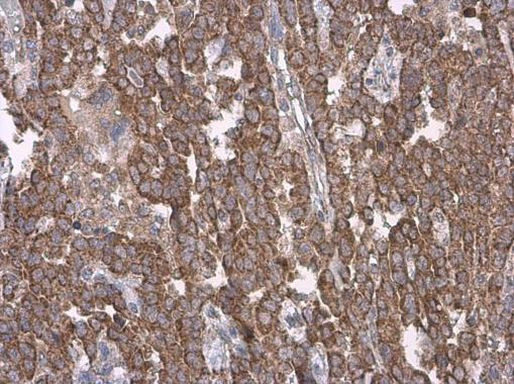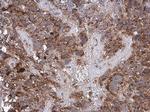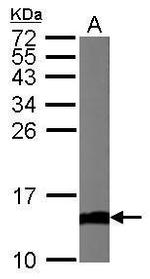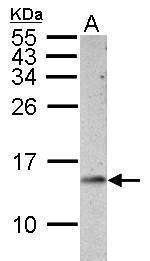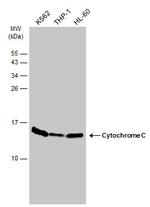Search Thermo Fisher Scientific
Product Details
PA5-28856
Species Reactivity
Host/Isotype
Class
Type
Immunogen
Conjugate
Form
Concentration
Purification
Storage buffer
Contains
Storage conditions
Shipping conditions
RRID
Product Specific Information
Recommended positive controls: 293T, K562, THP-1, HL-60, Mouse brain, PC-12, CYCS shRNA-transfected 293T, 293T, SCC-25.
Predicted reactivity: Mouse (91%), Rat (91%), Xenopus laevis (85%), Dog (89%), Pig (90%), Chicken (87%), Chimpanzee (100%), Bovine (90%).
Store product as a concentrated solution. Centrifuge briefly prior to opening the vial.
Target Information
Cytochrome C is an electron transporting protein that resides within the intermembrane space of the mitochondria, where it plays a critical role in oxidative phosphorylation and the production of cellular ATP. Release of cytochrome C from the mitochondria to the cytosol is triggered by apoptotic stimuli. In the cytoplasm, the cytochrome C binds apoptotic protease activating factor which activates the apoptotic initiator procaspase 9. Cytosolic cytochrome C functions in the activation of caspase 3, an ICE family molecule that is a key effector of apoptosis.
For Research Use Only. Not for use in diagnostic procedures. Not for resale without express authorization.
References (0)
Bioinformatics
Protein Aliases: Cytochrome c; Cytochrome C, expressed in somatic tissues; Cytochrome c, somatic; hc1
Gene Aliases: CYC; CYCS; CYCSA; HCS; THC4
UniProt ID: (Human) P99999, (Mouse) P62897, (Rat) P62898
Entrez Gene ID: (Human) 54205, (Mouse) 13063, (Rat) 25309

Performance Guarantee
If an Invitrogen™ antibody doesn't perform as described on our website or datasheet,we'll replace the product at no cost to you, or provide you with a credit for a future purchase.*
Learn more
We're here to help
Get expert recommendations for common problems or connect directly with an on staff expert for technical assistance related to applications, equipment and general product use.
Contact tech support
